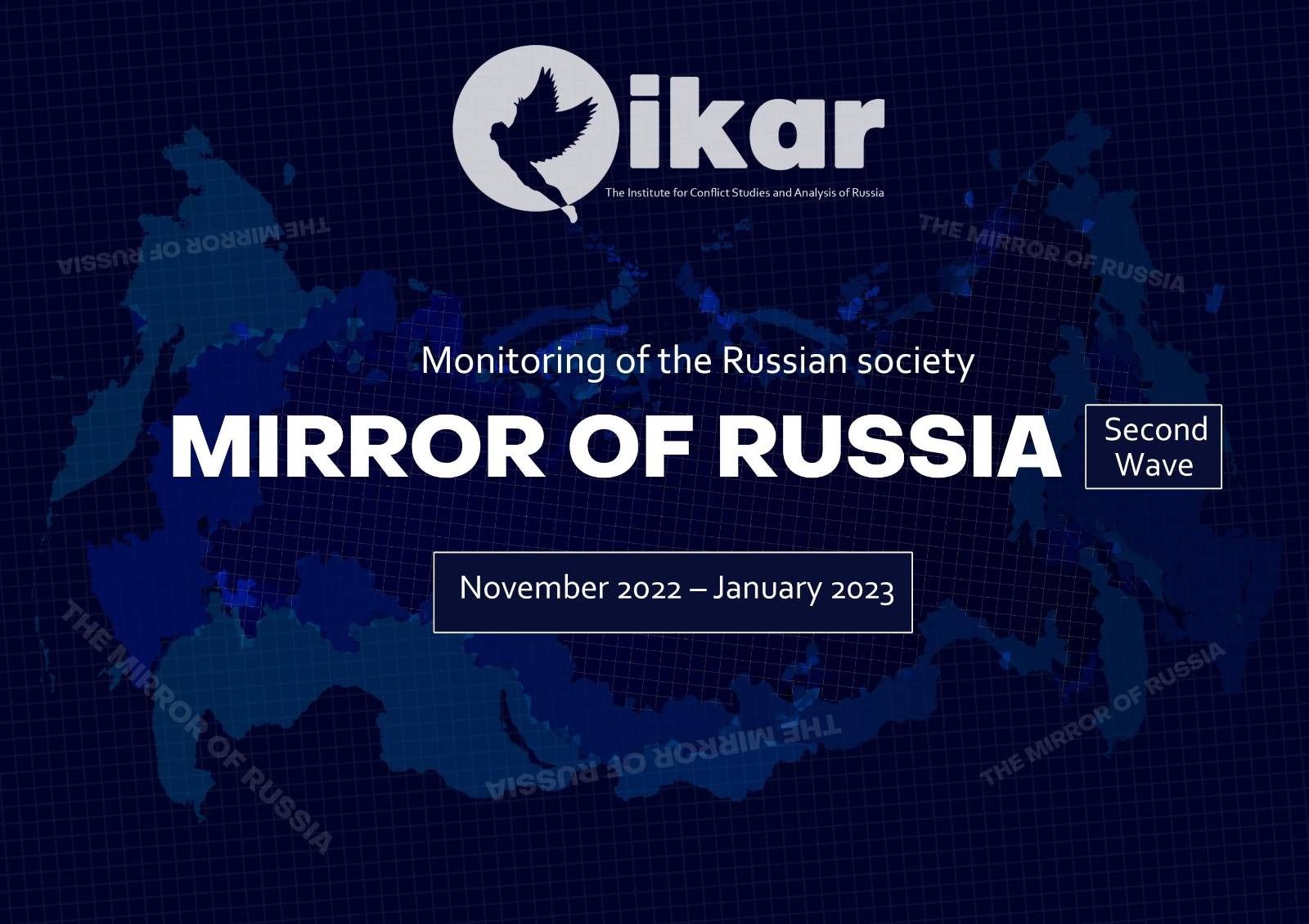
"Mirror of Russia" - The Second Wave (November 2022 - January 2023)
29/01/2023, 10:00
Russians are increasingly feeling the consequences of the war against Ukraine.
The Institute for Conflict Studies and Analysis of Russia (IKAR) conducted a monthly sociological survey of Russian society called "Mirror of Russia". From November 10th, 2022 to January 26th, 2023, the second wave of the study was conducted on an all-Russian sample dedicated to the anniversary of the full-scale invasion of the Russian Federation. The survey method is CATI (Computer Assisted Telephone Interview), a telephone survey based on an interactive structured questionnaire using special software for sociological surveys. A total of 1,600 respondents were interviewed.
Main results of the second wave of the survey:
1. In Russia, the number of people having close friends or acquaintances among those drafted for the war against Ukraine has increased: compared to the beginning of December (60%), their share has grown to 69%. As a result, the number of Russians who have had someone close and/or acquaintances killed since the beginning of the "Special Military Operation" (“SMO”) has increased from 29% in December to 36% in January.
2. Therefore, the main event of 2022 for Russians (72%) is the "Special Military Operation against Ukraine," and it is also the main problem they face (47%).
3. If in December 2022 the majority of Russians considered the partial mobilization during the fall as the right step, in January 2023, this same majority (60%) has a negative attitude towards the possible announcement of a second wave of partial mobilization. That is why respondents predominantly support increasing the Russian army to 1.5 million people, involving prisoners, as well as the Belarusian army in military operations against Ukraine.
4. Three-quarters of Russian citizens are confident that they know the goals of the "Special Military Operation." However, none of the goals gains a majority of votes – relatively more often (39%) mentions the denazification of Ukraine and confrontation with the West (19%). The other goals receive less than 10% of the votes. _ 5. Most Russian citizens would support an “SMO” by Russia against Kazakhstan or the Baltic states under certain conditions. 26% and 34%, believe that the conditions for conducting military operations against these countries are already present._
6. Russian citizens believe the “SMO” has practically not achieved its goals, but almost three-quarters would support it if it ends tomorrow. An important change compared to the December survey is a sharp decrease in support for an indefinite “SMO” – from 48% to 12% – and a simultaneous increase in undecided – from 15% to 32%.
7. Almost three-quarters of Russians (70%) do not know who they would vote for if Vladimir Putin did not participate in the presidential elections. All other candidates currently receive no more than 5-6% of the votes. The statistical error with a probability of 0.95 does not exceed 2.5%
